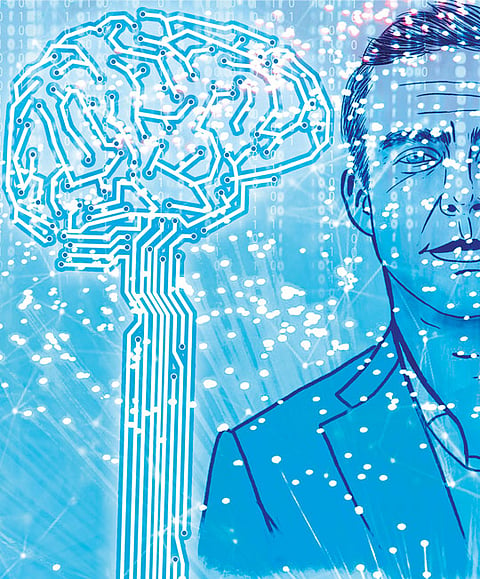Let’s treat ‘digital workers’ as peers
Work models are changing in front of us in real-time, and not just in remote ways

For decades, tech advances have changed the way we work, and organisations have adapted. So, why is this time different?
Why is work transformation — or the “future of work” — becoming a disruptive force that goes to the very core of corporate culture, stakeholder roles, and how business is conducted? And why are organisations struggling to support and adjust to the new work experience?
Work transformation is critical for effectively scaling digital initiatives and will help increase business agility, worker productivity, and operational efficiency. Most importantly, it will facilitate greater stakeholder engagement and drive greater business value, enabling organisations to establish competitive differentiation in a dynamic environment.
Rise of humanism
As organisations expand digital transformation — and move into what IDC calls the “era of multiplied innovation” — it’s becoming increasingly clear that traditional work models are no longer nimble or adaptive enough. Nor are they scalable.
In the new work experience, humans will operate side by side with “digital coworkers” powered by AI, robotics, AR/VR, and intelligent process automation, enabling humans to focus on higher-value activities. The future of work is about the rise of humanism as the new driver of value — with skills such as imagination, creativity, and empathy gaining prominence.
All of this calls for entirely new work environments, organisational structures, and metrics for success, not just incremental adjustments.
Skill shortage
As the pace of tech advances accelerate, the “half-life” of relevant skill sets declines. It is for this reason that 75 per cent of respondents to IDC’s “Future of Work Survey” indicated their organisation was finding it difficult to recruit digital skills, at least in some areas.
The need for new skills has resulted in organisations leveraging disparate online training programmes, limiting the organisation’s ability to monitor progress, adjust training priorities, and measure impact.
Organisations lack the agile and adaptive learning systems required to align and assess talent potential and reskill employees. In addition, traditional “one-and-done education” mindsets prevent workers from embracing new learning strategies.
High-performing organisations today mandate that all employees must have the minimum skills in data, coding, and/or digital technologies. However, human resources transformation is just as important as IT transformation.
By 2022, we expect 33 per cent of the world’s top 1,000 public companies will offer AI-driven learning pathways as the primary approach to career development and succession planning. For these organisations, talent is a source of competitive advantage.
Digital workers
These changes are happening rapidly — in fact, many of us are already seeing the growing role of “digital workers”. Organisations were presented with a set of work activities and asked to estimate the contribution of digital workers today and in two years’ time — the result was they expect an increase by over 50 per cent.
With the push to increase productivity, reduce time-to-market, and cope with the lack of digital talent, organisations will leverage these digital workers to enhance each worker’s capabilities and give them tailored “superpowers”.
Leadership will play a crucial role in this process. Organisations will need to understand and apply behavioural indicators, support, and training to achieve the broad-scale realignment of management culture. These tools will need to extend throughout the enterprise, allowing for omni-directional visibility into each team’s performance.
Ultimately, the future of work is about rethinking the way work gets done. It represents a fundamental shift in the work model to one that fosters human-machine collaboration, enables new skills and worker experiences, and supports an environment unbounded by time or physical space.
— Jyoti Lalchandani is regional Managing Director at IDC.







